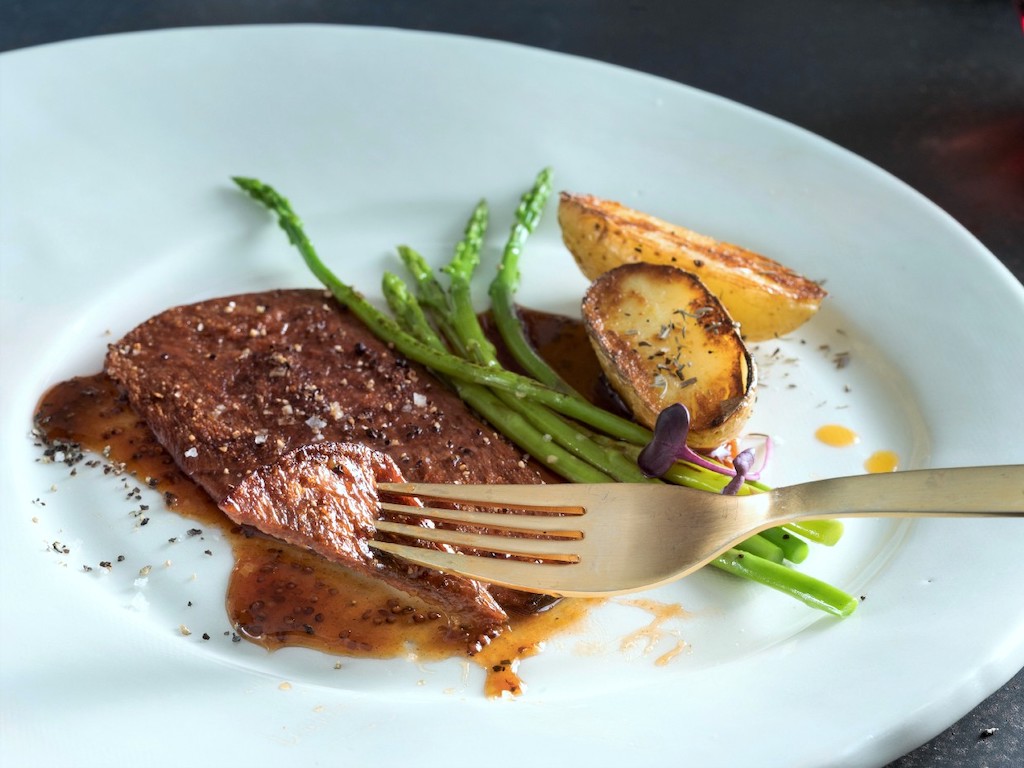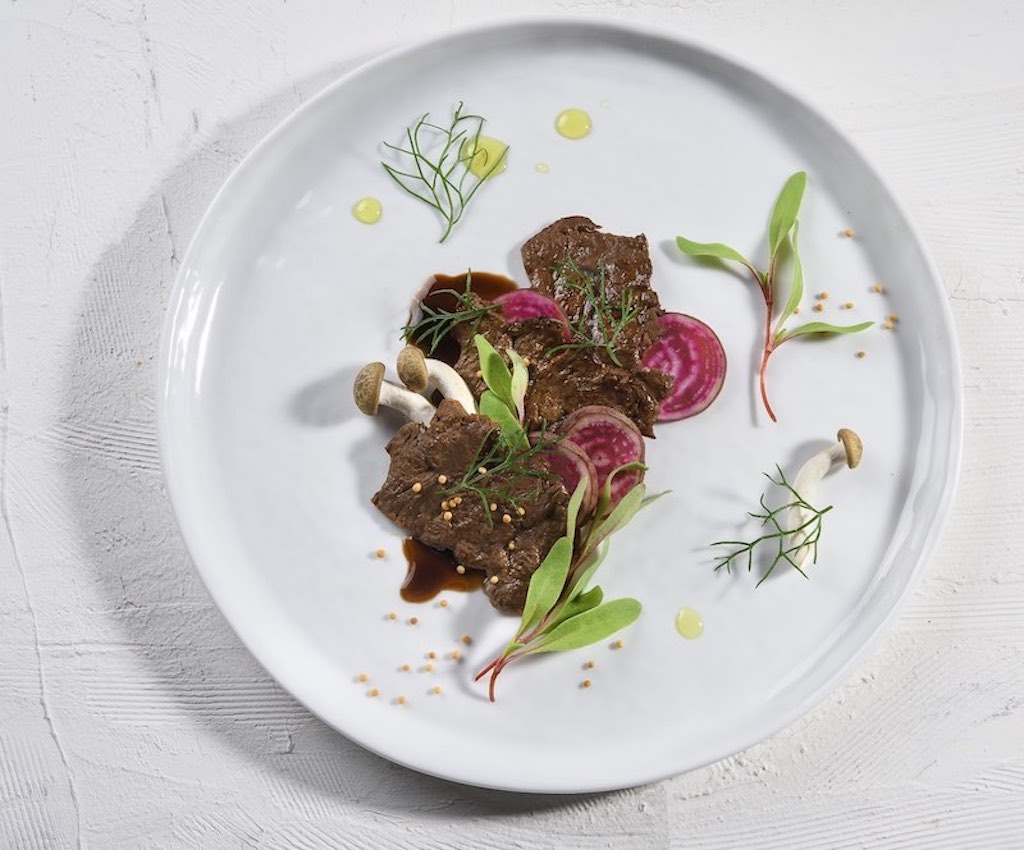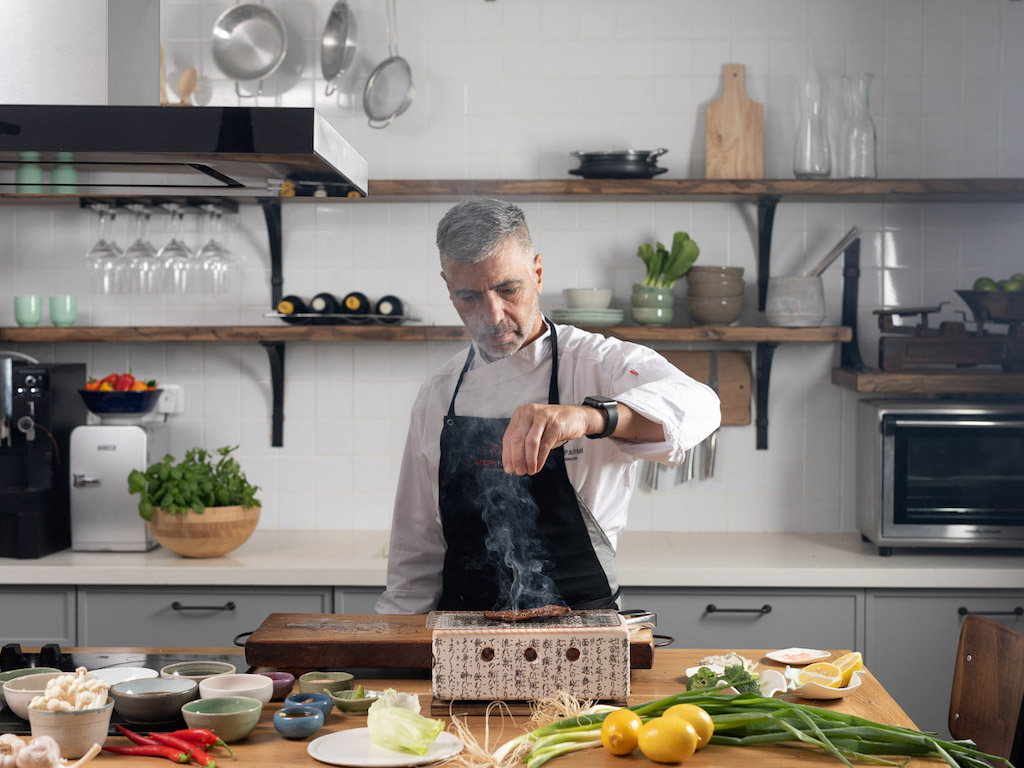Israel’s Aleph Farms Partners With Mitsubishi To Bring Cultivated Meat Manufacturing Platform To Japan
3 Mins Read
Israeli food tech Aleph Farms has announced a new agreement with the food industry arm of Japanese corporate giant Mitsubishi to bring cultivated meat to Japan. Under the newly formed partnership, the Israeli cell-based meat maker will provide its manufacturing platform to cultivate whole-muscle steaks while Mitsubishi will bring in biotech, food production and local distribution expertise.
The agreement, signed on Tuesday (January 5), will see the Mitsubishi Corporation’s food industry group work alongside Israeli food tech Aleph Farms to bring cell-based meat to Japanese plates by offering its scalable manufacturing platform dubbed BioFarm. The BioFarm plant will enable the mass cultivation of whole-muscle steaks grown directly from non-GMO cells of a living cow, without the need for slaughter and at a fraction of the environmental cost.
Didier Toubia, co-founder and CEO of Aleph Farms, described the partnership as an “important milestone” for the company, particularly for accelerating its “global go-to-market activities with selected partners.”
The cooperation demonstrates Aleph Farms’ strategy of working together with the food and meat industries to ensure a successful integration of cultivated meat within the ecosystem, while maximising the positive impact we make.
Didier Toubia, Co-Founder & CEO, Aleph Farms

It comes on the heels of Aleph Farms’ landmark achievement of gaining the backing of Israeli prime minister Benjamin Netanyahu, who tasted its cultivated steak and toured the startup’s facilities in December 2020 in a strong show of government support for the burgeoning alternative protein sector that has already been on a buzz following the world’s first regulatory approval of cell-based meat in Singapore.
“The cooperation demonstrates Aleph Farms’ strategy of working together with the food and meat industries to ensure a successful integration of cultivated meat within the ecosystem, while maximising the positive impact we make,” Toubia continued. “We are excited to bring cultivated meat production closer to the Japanese market.”
Since its inception in 2017, the startup has raised a US$12 million Series A round and is currently in the process of transitioning its products to pilot production as soon as next year. The Cargill-backed company says it is planning to launch its products commercially by the end of 2022, and has also launched a new space program to grow steaks in extraterrestrial environments in partnership with space agencies.

Both Aleph Farms and Mitsubishi are a part of the Cellular Agriculture Study Group, a consortium of key industry stakeholders to recommend policy proposals for the Japanese authorities’ rule-making process for cultivated foods. Japanese regulators signalled that it will draw up definitions, clarifications and competition rules for cultivated protein last year, citing the sector as a safer, healthier and more sustainable method to produce protein and a turnkey solution to bolster food security in the wake of the coronavirus pandemic.
The Japanese government has also supported homegrown ventures in a bid to boost local sustainable protein production, notably awarding Tokyo-based IntegriCulture with a ¥240 million (US$2.2 million) grant to build a commercial cellular agriculture facility.
Unlike conventional animal agriculture, Aleph Farms, IntegriCulture and other cell-based startups have grown meat directly from cow cells under controlled conditions, using a fraction of the resources and without the need for antibiotics, which experts have warned is threatening yet another public health disaster – a superbug antibiotic resistance crisis.
All images courtesy of Aleph Farms.




